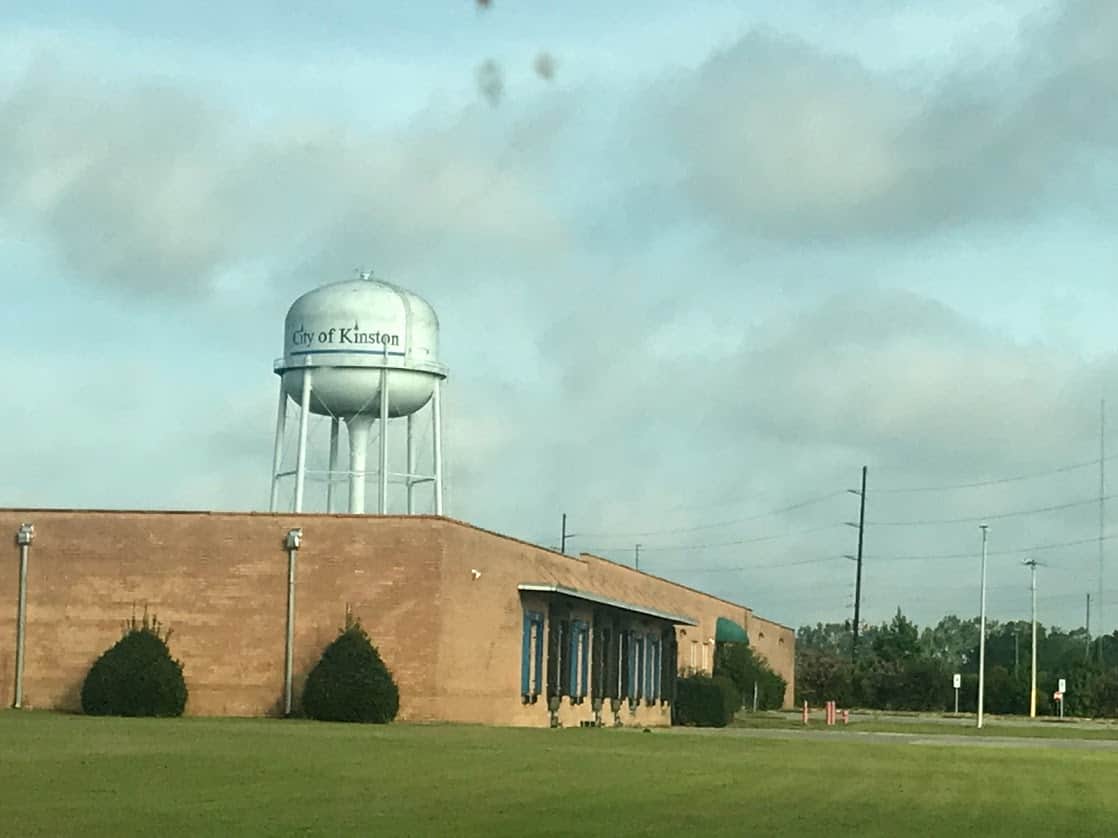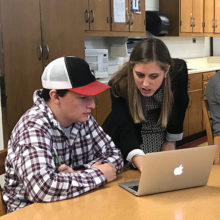At October’s State Board of Community College meeting, members were treated to a sobering presentation on the challenges facing community colleges. Robert Templin, a professor at North Carolina State University’s College of Education and former president of Northern Virginia Community College, explained how community colleges will have to respond to changing demographics and shifting workforce needs, among other things, in order to survive.
“Business as usual has got to stop,” Templin said. “Not for the sake of community colleges. For the sake of our state. For our people.”
One community college stepping up to the challenge is Lenoir Community College. Located in Kinston, Lenoir Community College (LCC) serves Lenoir, Jones, and Greene counties. While community colleges across the state are experiencing declining enrollments, as is typical during a strong economy, LCC has seen an enrollment increase of about two to three percent this year, according to President Rusty Hunt.
Many factors drive enrollment, but LCC is not sitting back and waiting for students to come to them. Coupled with innovative strategies to bolster student retention, they are expanding short-term workforce training to meet industry and workforce needs and providing a model for colleges across North Carolina.
Building ladders
President Rusty Hunt’s passion for education is evident as he discusses the many ways LCC is evolving to better serve students and the community. Recognizing that the rapid pace of technological change requires constant learning, Hunt is leading LCC to focus more on short-term workforce training.
“The changing skills and how rapidly they change is tremendously important, so those upskilling courses that we offer are going to increasingly be more important,” Hunt explained. “It used to be you could teach a trade and you’d learn that trade and you could do it for 15 to 20 years, but it changes so rapidly with technology.”
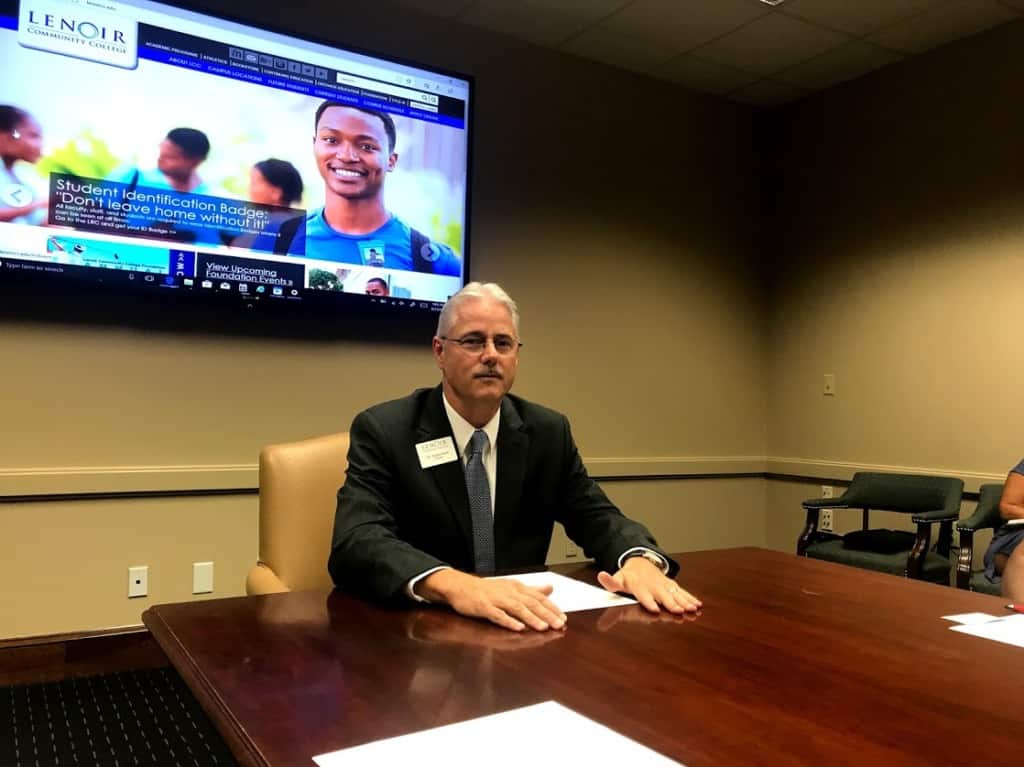
In response to the changing workforce needs, LCC is creating more short-term continuing education programs that align with their longer certificate programs. The idea is that the short-term programs can give students the skills they need in an eight- or sixteen-week course, after which the students can go to work immediately or receive credit for the course and continue in the curriculum program.
“We’re taking a lot of our curriculum programs and breaking them down into shorter-term training programs,” Hunt explained, “… so that if a student comes in and takes a [continuing education] class … they’re not only getting con ed credit, if they decide to go through our curriculum program they are getting the credit for that because we built the con ed program just like the curriculum program.”
The goal is to integrate the continuing education and curriculum programs in order to build ladders for people to move up, whether that is through a 16-week manufacturing program or a two-year program. A visible representation of this new strategy will be the expansion of the North Carolina Global TransPark, an industrial and business park located a few minutes drive from LCC in Kinston.
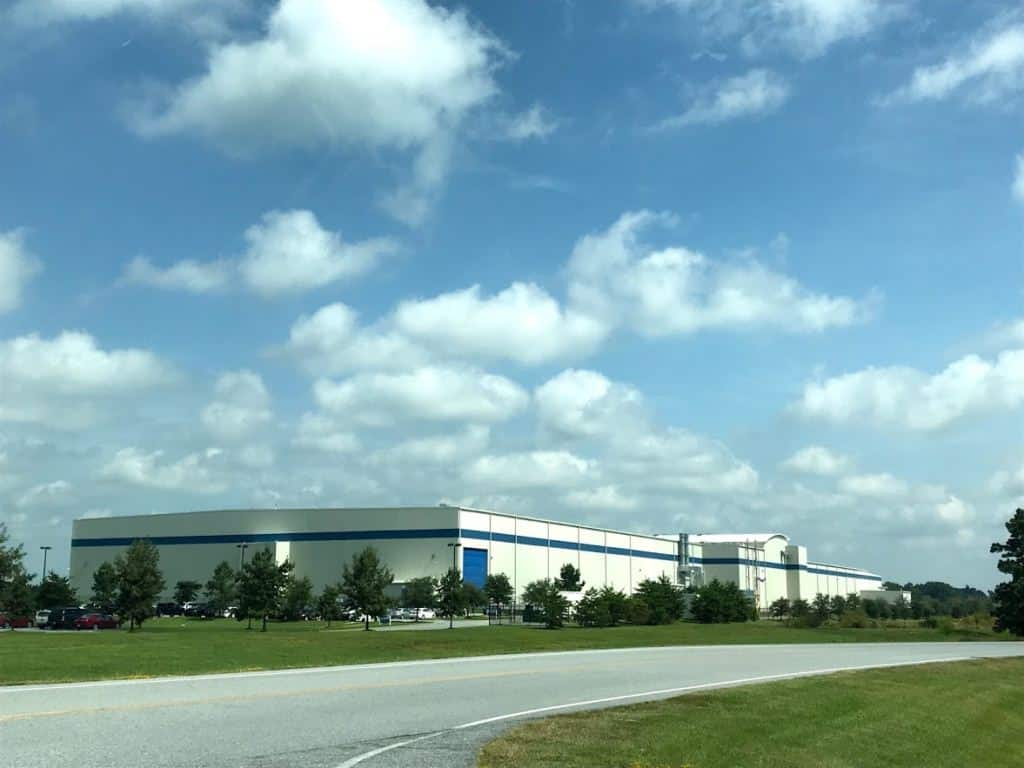
LCC partners with Spirit AeroSystems to train their workers at the Spirit AeroSystems Composite Center of Excellence in the Global TransPark (GTP). This summer, LCC announced they will be adding an aerospace and advanced manufacturing center to GTP. A partnership between the college, GTP, N.C. Department of Transportation, Spirit AeroSystems, Lenoir County Economic Development, and Lenoir County Manufacturers Association, the new center will house both short-term continuing education programs and two-year associate degree programs.
“What you’ll see [at the new center] is when you walk in the door, you’re going to get served right there in that space for anything you need,” Hunt said. “You might go into manufacturing academy for a 16-week program, you might go in our two-year program, but we’re going to have ladders.”
Currently, LCC provides recertification and new hire training for Spirit. According to John Weatherford, an aerospace manufacturing instructor, LCC has trained about half of Spirit’s 650 employees in Kinston. With the addition of the new center, LCC hopes to expand their work with Spirit.
LCC also runs their aviation program at GTP, where students prepare for a career as a commercial pilot or in aviation management. LCC has an articulation agreement with Embry-Riddle Aeronautical University.
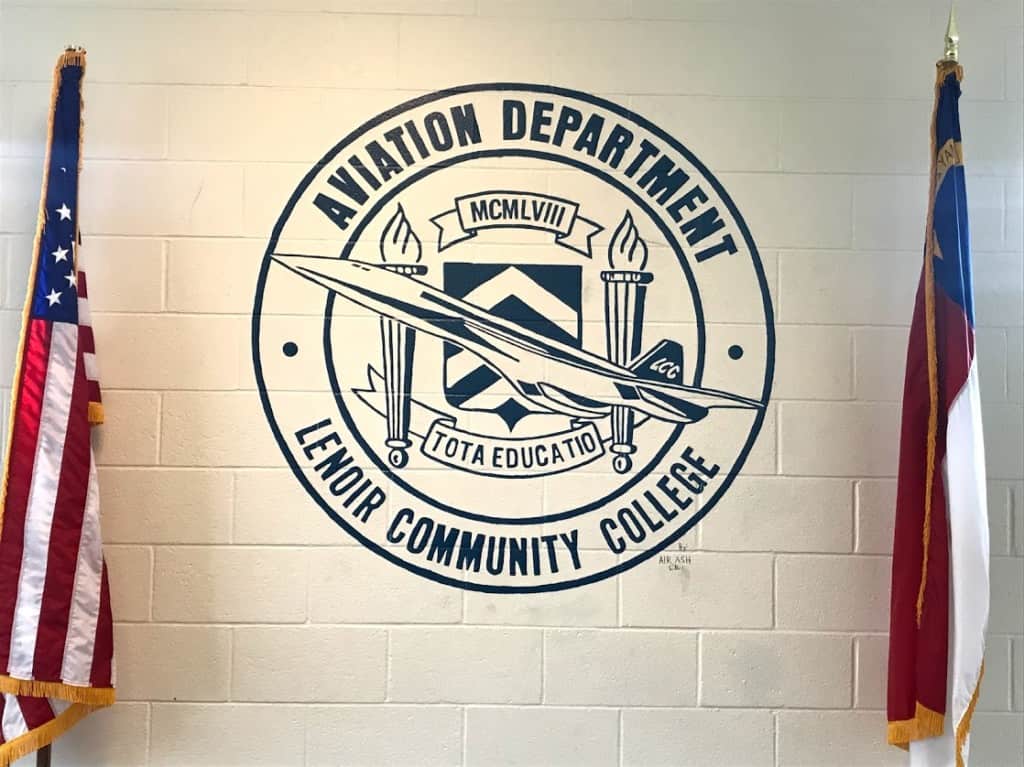
Recruitment and retention
Building ladders is not just about creating new programs, however. LCC also has to recruit and retain students in those programs. One of the biggest challenges to recruiting, according to President Hunt, is getting students interested in programs like advanced manufacturing.
“I think [one] of the largest challenges is more a student interest challenge than it is anything else,” Hunt explained. “When you think about years ago, previous generations lost manufacturing jobs … but those are the jobs coming back. It’s just getting that interest level back up is a big piece of that.”
To meet this challenge, LCC recently started the LCC Guarantee, a scholarship for high school students from the area. To qualify for the scholarship, students must graduate with a 3.0 or higher, have taken nine College and Career Promise (CCP) credits at the college with an average grade of C or higher, and enroll full-time the fall semester after graduation. Just this fall, 43 students have qualified for the scholarship.
President Hunt is excited by the opportunity to help those “gap students,” or students who make too much to qualify for a Pell grant but still cannot afford the college tuition. For local students who want to get a four-year degree, he sees the LCC Guarantee as the best way to get two years of college credit without paying any tuition.
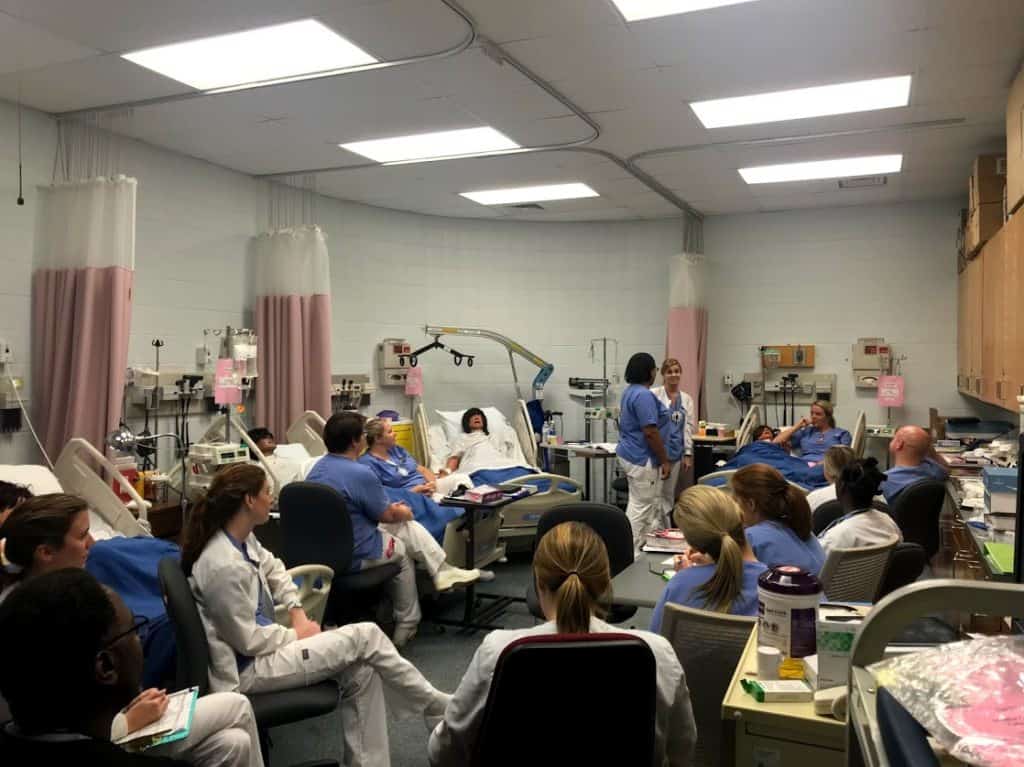
LCC is focused on retaining students through a variety of different initiatives.
In the spring, they will become one of the first community colleges in the state to implement the new RISE model. Driven by the low success rates of students placed in remedial math and English classes, the RISE model requires a corequisite math and English class for students who enter college with a certain high school GPA. The hope is that this new model, which has proven successful nationally, will help students get through remedial English and math classes and advance to college-level classes.
They are also piloting a texting bot named Lance that can answer student questions 24/7. If Lance doesn’t know the answer to a question, it will send the question to staff. Modeled after and developed by the same company that developed Georgia State’s Pounce chatbot, Lance can also send students reminders via text message, such as when to file the FAFSA.
LCC is piloting the chat bot this year with around 300 students, according to President Hunt, and they are excited to see the results. At Georgia State, the use of the chat bot the first summer resulted in 324 students enrolled that fall who might not have enrolled otherwise.
